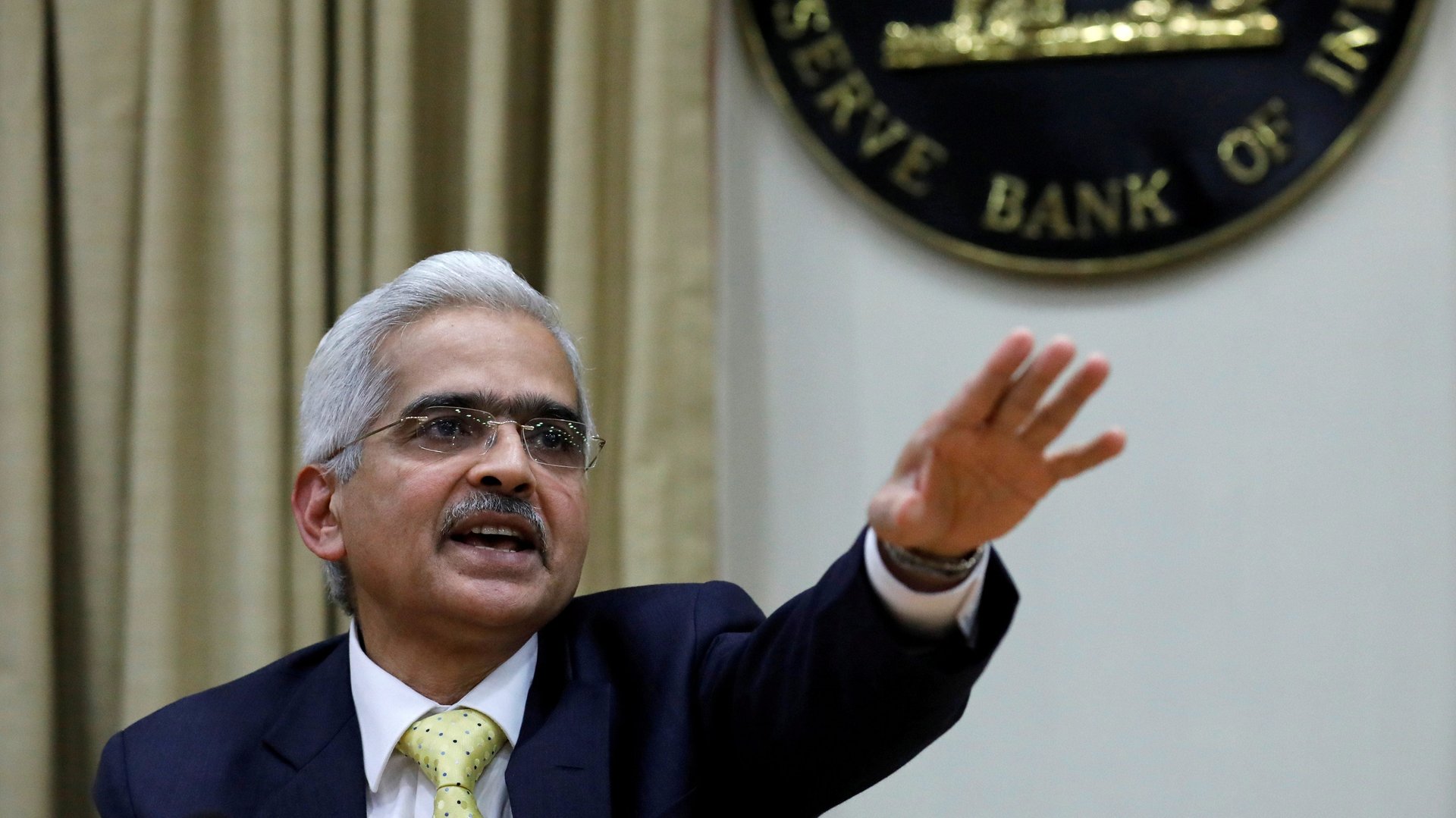India’s central banker believes the number of crypto investors in the country is exaggerated
Reserve Bank of India (RBI) Governor Shaktikanta Das believes the number of Indians said to have invested in cryptocurrencies is “highly exaggerated.”


Reserve Bank of India (RBI) Governor Shaktikanta Das believes the number of Indians said to have invested in cryptocurrencies is “highly exaggerated.”
Das yesterday (Nov. 10) flagged investments in virtual tokens as a serious concern for India’s financial stability and its macroeconomy. “In terms of the amount that has been invested it’s definitely growing and anecdotally we hear so many things,” he reportedly said.
“But, I am not so sure about the numbers that are being quoted. Because, whatever information we have, with a reasonable amount of confidence I can say that the number of participants in the crypto market seems exaggerated,” he said at a Business Standard event.
While there is no official data on cryptocurrency investors in India, industry estimates show up to 6 lakh crore rupees ($80.5 billion) cumulatively having been invested by resident Indians in crypto assets. Their popularity has extended to millennials in tier-2 and -3 cities, too.
Globally, the total value of all cryptocurrency assets has just crossed $3 trillion.
Das said that more than 70% of investors from India, however, did not invest more than Rs3,000 per head in digital tokens.
The cryptocurrency craze in India is noteworthy more due to a lack of regulation. The RBI governor stated that the government was actively considering recommendations made in a report by a high-level panel headed by former economic affairs secretary Subhash Chandra Garg.
The government is reportedly expected to table the draft bill on regulating virtual currencies in the budget session of parliament in February.